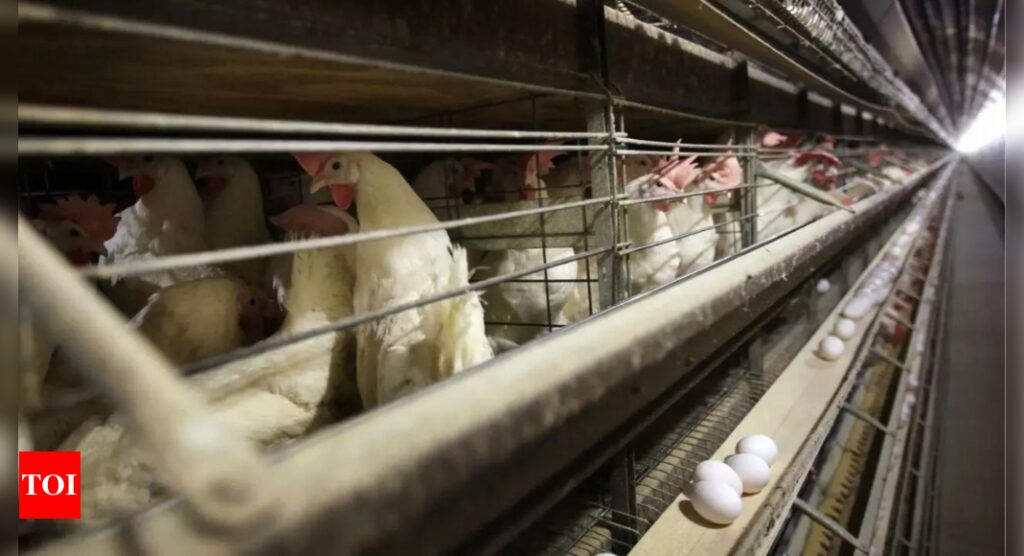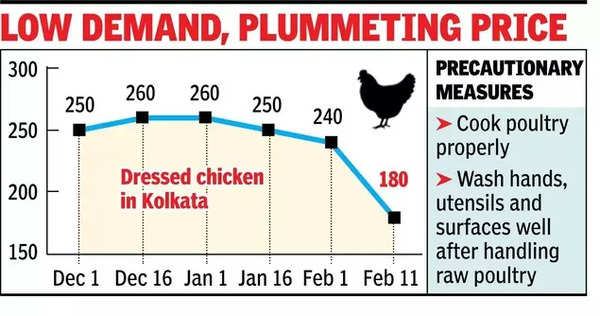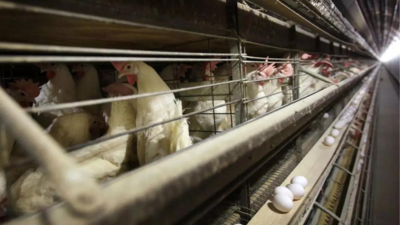Bird flu fears, Maha Kumbh knock Rs 50-60 off chicken prices across Kolkata markets

KOLKATA: A Maha Kumbh-bird flu fear combo has delivered a price punch to dressed chicken in Kolkata.
Falling demands because of pilgrimage season and fears about handling poultry has translated to a sudden drop in the price of dressed chicken – by as much Rs 50-Rs 60 per kilo.

Till about three days ago, dressed poultry was selling at Rs 240-Rs 250 per kilo; in the last two days, it has started selling at Rs 180-Rs 190, with many poultry dealers even resorting to distress sales.
Industry insiders reasoned that the sudden drop happened because of both Maha Kumbh (as many pilgrims turn vegetarian), and bird flu (which has been reported from some states recently), although it is agreed that properly cooked poultry products are safe to consume.
Madan Mohan Maity, general secretary, West Bengal Poultry Federation, said: “The ongoing Kumbh Mela has led to a decline in chicken consumption across multiple states, including in Bengal. Additionally, an influx of poultry from Odisha and Jharkhand is further driving prices down.”
This fiscal, the highest per-kilo price of dressed chicken recorded in city markets was Rs 260. Throughout Dec and Jan, the price fluctuated between Rs 240 and Rs 260. The price has, however, nosedived in the last two days.
‘Properly cooked poultry is safe to eat’
In prominent Kolkata markets, dressed chicken is now being sold at Rs 180-Rs 190 per kilo, whereas suburban markets are seeing even lower rates: Rs 170-Rs 180.
The sudden price drop has made consumers both happy and apprehensive. “I bought 2kg chicken today but my wife expressed fears of stocking it in the fridge,” said Abhinaba Ghosh, a state govt employee who stays in Barisha.
Some experts TOI talked to said properly cooked poultry products were safe to eat. The bird flu virus, they said, does not survive in well-cooked eggs and meat, especially if the food reaches an internal temperature of 74°C. They, however, stressed that proper handling of eggs and raw chicken was necessary to minimise any chance of contamination.
Instances of humans having caught bird flu are extremely rare across the world, although it’s known to have happened – not through eating contaminated meat, but by long exposure to infected poultry.
Traders and industry experts also pointed to a different reason for the falling demand. Satyajit Shinaroy, a Lake Market trader, attributed the decline also to the ongoing examination season. “Many households avoid consuming rich foods during this period, as students are preparing for board exams. This has also contributed to a decrease in demand,” he said.





